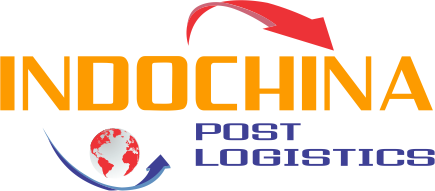When Vietnam joins the TPP, the Vietnam logistics industry has many opportunities to develop and engage more deeply into the world’s logistics centers…
According to the report of the World Bank, the forecasted growth rate between 2015 and 2020 is 12%/year and import-export turnover reached 623 billion USD in 2020, Vietnam is a promising destination for investors.
According to the statistics from the Vietnam Logistics Business Association (VLA), Vietnam’s logistics costs accounted for about 25% of GDP per year, much higher than countries such as the US, China, or Thailand.
In the coming time when the TPP agreement takes effect with many tariffs equal 0%, the export-import operations in Vietnam will promise to develop strongly. This is considered a great opportunity for the logistics industry to “boom”.
As an important link of the economy, the logistics activities help the goods to reach consumers and ensure the materials for the production process.
Despite facing strong competition from foreign rivals, many experts still appreciate the future prospects of the domestic logistics enterprises, especially in the context of free trade agreements (FTAs, TPP) boosted FDI inflows pouring into Vietnam industries.
On the other hand, the increasingly improved infrastructure in Vietnam will strengthen connectivity between logistics facilities and production areas; planning and support from the State, along with customs procedures are gradually improving in a positive direction.
In the recent two years, a series of key infrastructure projects have been started and completed as Long Thanh – Dau Giay highway, Noi Bai – Lao Cai highway, Ha Noi – Hai Phong highway, Ben Luc – Long Thanh highway Highway 51 connecting the industrial park with the ports and Soai Rap channel dredging works (in Hiep Phuoc port) and Thi Vai – Cai Mep channel…
In addition, the Government and the Ministry of Transport have launched a number of policies to guide, support, and stimulate the sustainable development of the domestic logistics industry such as a policy to control road loading, preferential policies for Vietnam ships on domestic routes, the draft to establish port authorities to develop ports and port services, Decision No. 1037/QD-TTG on the port development plan till 2020…
Moreover, according to the General Department of Vietnam Customs, Vietnam is also actively developing and implementing the ASEAN Single Window mechanism. The implementation of this process will benefit the business community, including logistics businesses such as reducing the time taken for administrative procedures and also cost reduction.
However, in order to develop the logistics industry, the State should build and complete the legal framework, standardized service processes, upgrading infrastructure and human resources for the field of logistics.
Government should also take measures to guide and promote logistics companies to link together, formed a company with strong capabilities, able to compete with foreign companies.
With the above subjective and objective elements, Vietnam’s logistics industry still has great potential to develop, and first of all, they will have conditions to advance to move towards the same level with foreign logistics businesses in the region.

